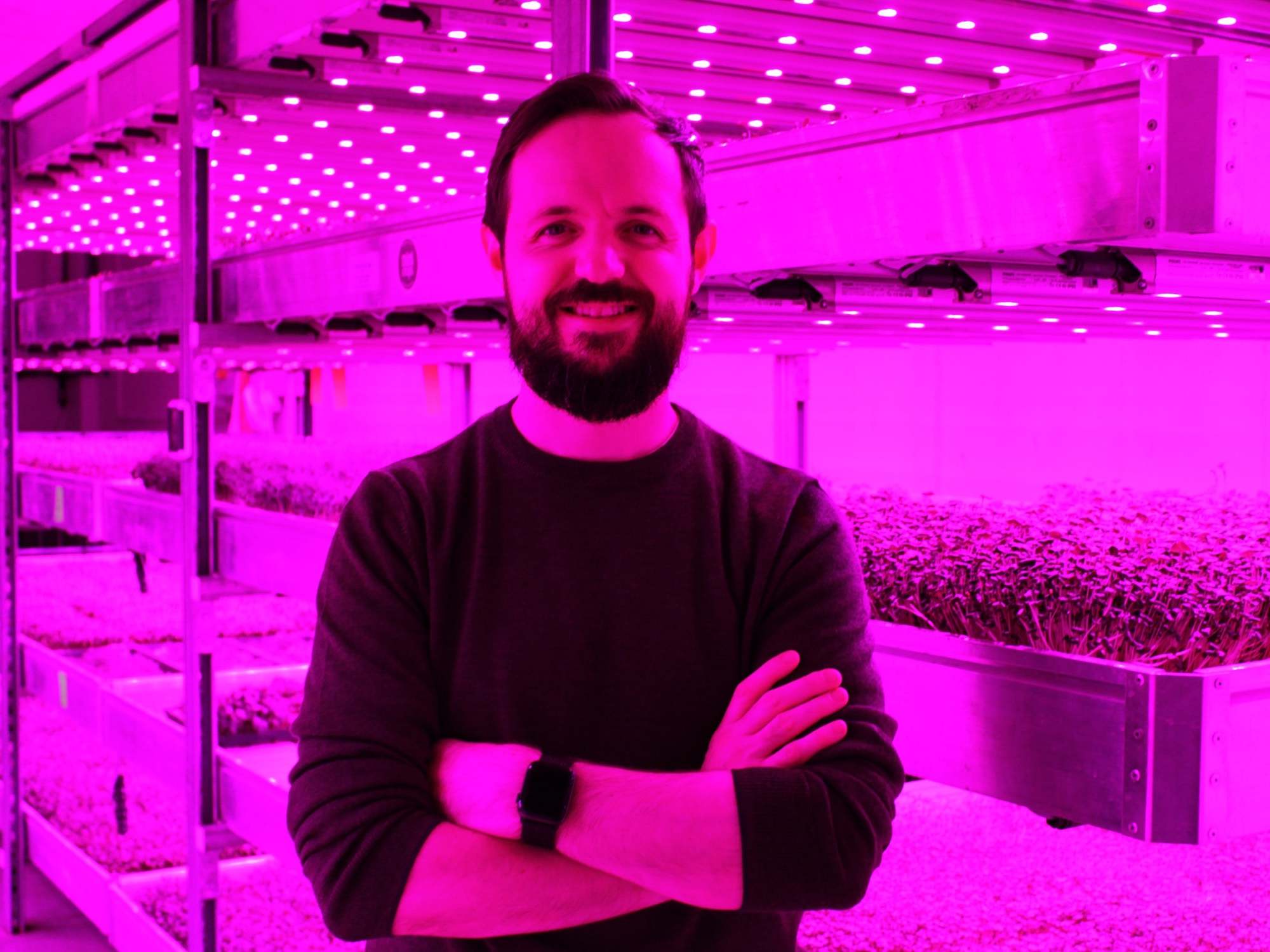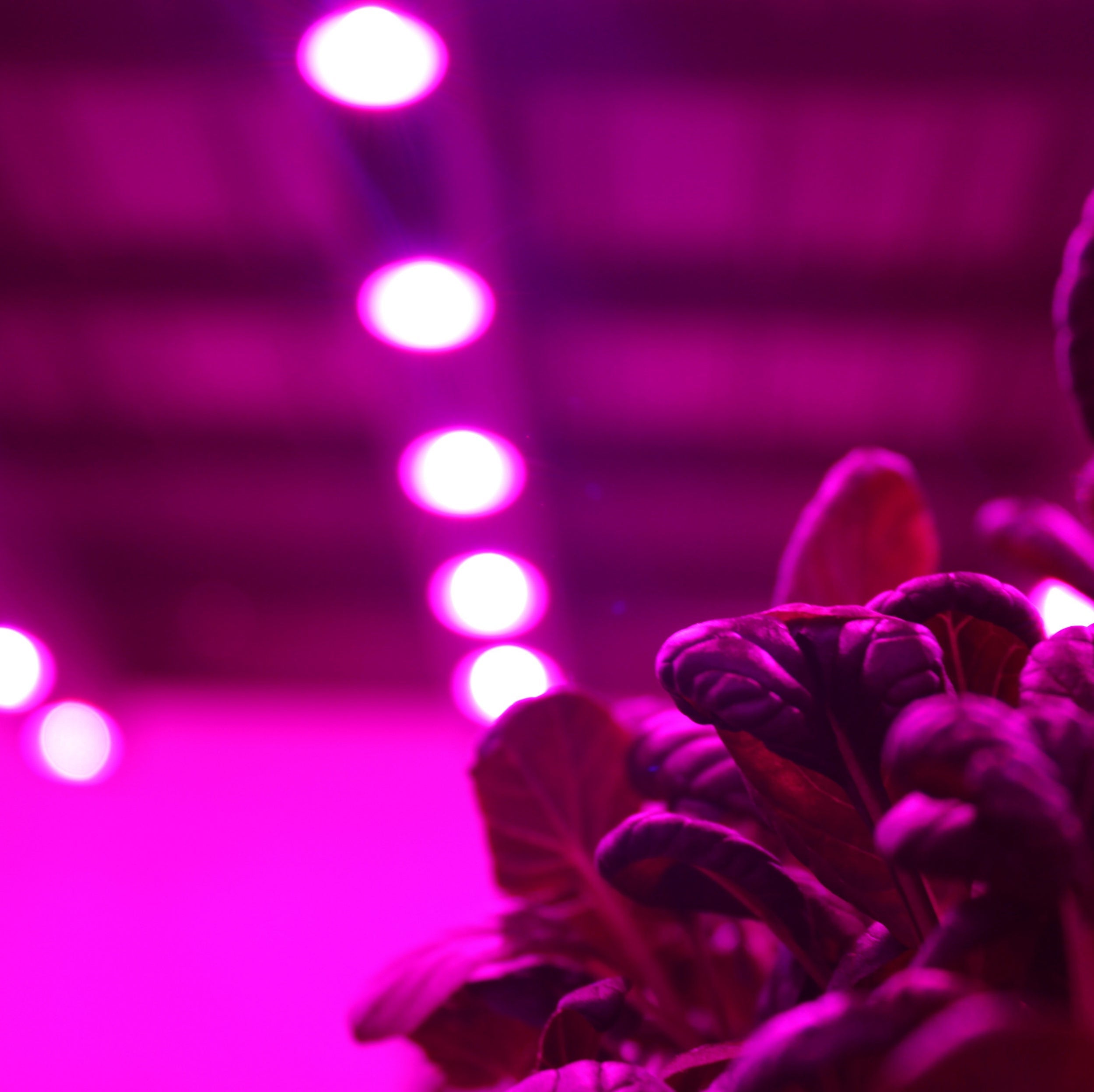How Jamie and Marie Burrows want to use vertical farming to feed Britain
Food has always just been the theme – this is really about how you apply tech in urban settings to solve problems, Jamie tells Martin Friel

The importance of the UK’s ability to feed itself has increased in line with the likelihood of a no-deal Brexit. Why? Well in 2016, the UK produced just 49 per cent of its food with only 23 per cent of the fruit and veg eaten in Britain grown here. That translates as €10.3bn (£8.8bn) of fruits and vegetables imported every year.
There are a multitude of reasons why this is an issue but chief among them is the environmental impact of global transportation of produce; and how that produce is manipulated to maintain freshness in transit and beyond.
This hasn’t gone unnoticed by a band of entrepreneurs who have been revolutionising the way we grow food in an attempt to make our consumption of fruit and veg more sustainable. Their answer? Vertical farms.
Put simply, vertical farming is the growth of produce in vertically stacked layers, usually using hydroponic or aeroponic growing methods where crops are grown without the use of soil, instead using nutrient-rich water and artificial light.
It might sound a little futuristic but it’s a large and growing market. In 2018, it was worth $3bn (£2.6bn) globally and it is predicted to grow to $22bn between 2019 and 2026. Although the world’s largest vertical farm is in Dubai and North America has the largest market, the UK has not let this revolution pass it by.
One homegrown company, Vertical Future, has recently secured a £4m investment allowing it to multiply crop-production capacity by at least 25 times, and give it the capacity to increase turnover from half a million pounds to £16m.
Its founders, husband and wife team Jamie and Marie Burrows, started the business as a way of getting out of the high stress/high reward corporate environment and doing something more meaningful and ethical with their working lives.
And they aimed high from the start. They didn’t just want to set up another high-tech firm – they wanted to tackle the growing health problems inherent in city living.

“I don’t consider myself a farmer at all,” says Jamie. “Food has always just been the theme – this is really about how you apply tech in urban settings to solve problems.”
Those problems, as he sees them, are the quality and nutritional value of food in the urban environment and the impact that current food distribution methods have on the CO2 levels of our cities.
Initially set up as a B2C venture, it quickly became clear that the baby leaf salads, micro-herbs and edible flowers they were producing were probably too niche to achieve the scale required to have the desired impact. The real opportunity was found in the restaurant sector.
There is a big market failure in the distribution of produce to restaurants [in London]
“There is a big market failure in the distribution of produce to restaurants [in London],” says Jamie.
“The produce can sit in Covent Garden market for a few days, is usually covered in chemicals and restaurateurs have little control over the product they receive.”
Crucially, with vertical farming methods, chefs can order produce tailored to their needs and tastes.
“Every chef will have different views or expectations about how something should look or taste, and they will never be able to achieve that through the standard distribution network,” Jamie explains.
“They can ask us for coriander with larger leaves or to have it taste sweeter and we can deliver that by adjusting the nutrient solution to create the type of crop the customer wants.”
From two sites (Deptford and London Fields), Vertical Future provides its range of roughly 80 crops to over 100 restaurants across London. Although consumers can still buy the produce online, the focus is very much on the restaurant sector which will soon be serviced by two additional sites. When these are operational early next year, the plan is to provide ethical produce to over 1,000 restaurants within the next 18 months.
Every restaurant we have ever approached uses baby leaf and if you can grow that in a sustainable way, closer to the consumer, you’ve hit the jackpot
And these restaurants will be able to choose from a much wider range of crops.
“We are growing more baby leaf – the bagged salad type stuff,” says Jamie, a market he points out is worth £1.1bn in the UK alone.
“Every restaurant we have ever approached uses baby leaf and if you can grow that in a sustainable way, closer to the consumer, you’ve hit the jackpot.”
That proximity to the consumer, which reduces the environmental impact of transportation, is a key element of what Jamie and Marie are trying to achieve. Rather than plug into the existing distribution network, their produce arrives at kitchens across London via public transport, e-bikes and electric vans.
And in line with their principle of improving urban living, they prioritise low value or disused urban spaces as sites for their “high-tech, automated, highly efficient vertical farms or ethical plant factories, as we call them”.
Which is great – but they’re going to struggle to realise their dream of improving urban health by shifting a few boxes of baby gem lettuce on the back of a double-decker bus. However, Vertical Future is banking on this nascent agricultural revolution becoming mainstream before too long.
“I believe that vertical farms will become an integral part of the way cities work in the next five to 10 years,” says Jamie.
And with investors already lined up for a much larger investment round in two years’ time, it would appear that Jamie is not alone in having faith in the world of micro-veg.
Join our commenting forum
Join thought-provoking conversations, follow other Independent readers and see their replies
Comments
Bookmark popover
Removed from bookmarks